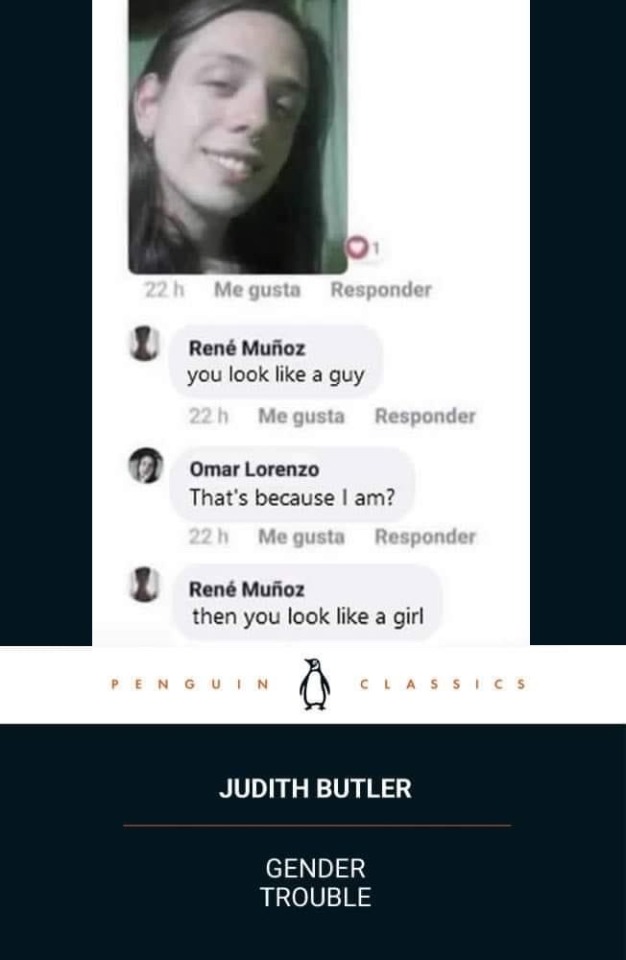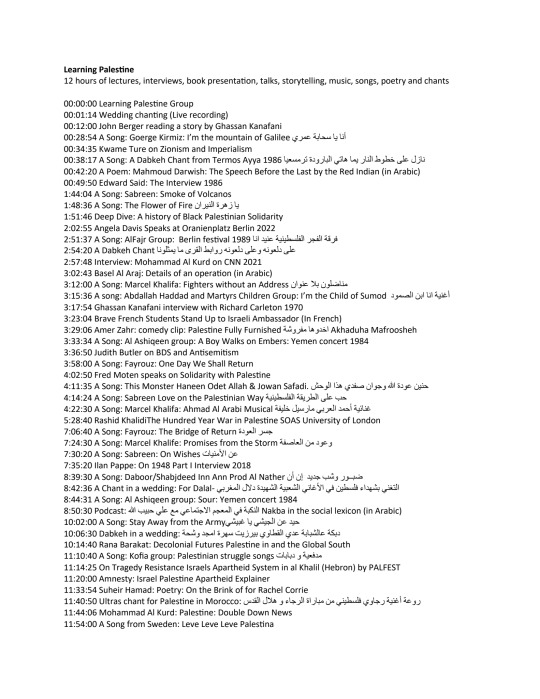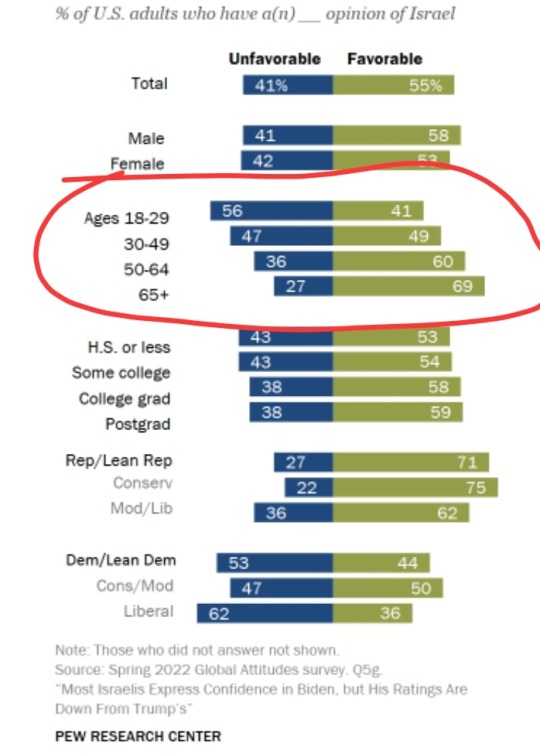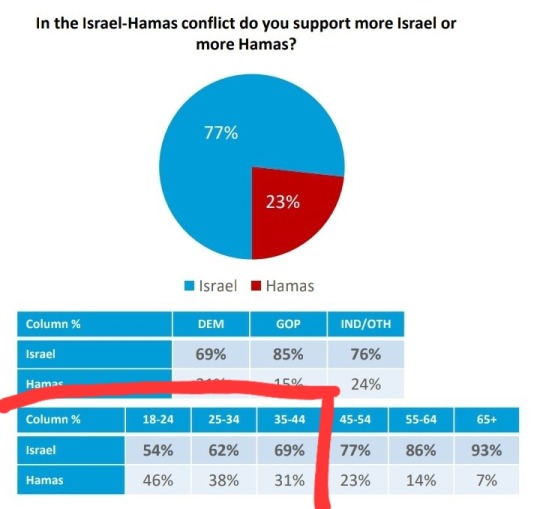#Judith Butler
Explore tagged Tumblr posts
Text
I dislike the “performative man” meme that is going around. I find that just reinforces these ideas that men cannot enjoy things that are traditionally “feminine”. I find that in having known a wide variety of men throughout my life thus far I cannot say men have enjoyed listening to music like Claro, Mitski, or even Phoebe Bridgers but often didn’t openly talk about it because they would be seen as deviating from what men are allowed to do.
If being “performative” leads to more men reading then isn’t that a good thing? Even if it’s somehow disingenuous the fact that they are making an attempt to read is still good.
I do take umbrage with the whole idea of being performative though to quote Judith Butler “gender proves to be performance— that is, constituting the identity it is purported to be…” from their book Gender troubles (which is a good read and you should make time to read it if you can). What they mean by this is that gender isn’t a solid state noun, but a verb. You must act masculine, you must do the things men do, in order to be a man.
Expressing our identities through actions and words is the way we then become our identity. If someone did not dress as a man nor a woman and acted in ways that were completely androgynous they would be seen as some other thing that is unknown. That idea was a sort of movement in the late 1980-90s if I have my history right.
So saying someone is a “performative man” is just saying they’re doing the same thing people have been doing forever. If we find that something can be seen as within our identity is becomes easier to then be that thing, no?
Now that isn’t to say the whole matcha drinking faux feminist thing isn’t an act, but the ideas behind calling it performative and ridiculing them seems oddly patriarchal to me. We are reinforcing these ideas of what a man can be that restricts men from expressing aspects of themselves that they otherwise may not have been able to. Perhaps some of those men will find they actually like matcha, or in reading some bell hooks or some other feminist thinker their world view is expanded.
While it is something people are doing to attract other people, so is a bunch of stuff people do and have been doing for DECADES. I remember just a few years ago when some videos of women saying they liked it when men wore grey sweat pants, because it let them see the dick outline or something like that, going to school and seeing other guys wear more grey sweatpants. Hell think of queer people putting pins on their backpacks or clothes. That is also performance of identity which signals your identity to other people!
I’m sure this comes off as ramblings or whatever but it’s my thoughts on something I’ve been seeing online
11 notes
·
View notes
Text

15K notes
·
View notes
Text



out of context Judith Butler (all from Undoing Gender)
203 notes
·
View notes
Text
“… sex assignment is not simply an announcement of the sex that an infant is perceived to be; it also communicates a set of adult desires and expectations. The infant’s future is often being imagined or desired through the act of sex assignment, so sex assignment is not a simple description of anatomical facts, but a way of imagining what they will mean, or should mean. That imagining comes from elsewhere, and it does not exactly stop after sex has been legally or medically determined at birth. The girl continues to be girled; the boy continues to be boyed; and these practices of girling and boying are repeated not just by parents, but also by a range of institutions that greet the child with boxes to be checked and norms to be embodied. In a sense, sex assignment does not happen just once. It is an iterative process, repeated by different actors and institutions, and depending on where one lives, it can be reiterated in ways that are not always in conformity with one another. Sex assignment is not a mechanism, but a process.”
— Judith Butler, “Who’s Afraid of Gender?”
14K notes
·
View notes
Text


https://www.dropbox.com/sh/41pu2j0alrvmmqq/AADcNEo2K-fsdlacFfuXnKtva?dl=0
Above is the link to an audio file with Palestinian music, read-aloud poetry, storytelling, and excerpts from speeches on history and liberation. It was gathered by Radio Al Hara, an internet radio station broadcast from Ramallah, Bethlehem, and Amman in Jordan, founded during the pandemic as a way to connect during isolation. “Al Hara” means “the neighbourhood” in Arabic. From the river to the sea! 🇵���
#palestine#liberation#radio alhara#kwame ture#john berger#ghassan kanafani#edward said#mahmoud darwish#judith butler#angela davis#i actually got to listen to her in berlin that day#and took notes of her entire speech#as it was so amazing!#it was almost exactly a year ago#nothing brings hope like listening to revolutionaries
7K notes
·
View notes
Text

"Some people have asked me what is the use of increasing possibilities for gender. I tend to answer: Possibility is not a luxury; it is as crucial as bread. I think we should not underestimate what the thought of the possible does for those for whom the very issue of survival is most urgent. If the answer to the question, is life possible, is yes, that is surely something significant. It cannot, however, be taken for granted as the answer. That is a question whose answer is sometimes “no,” or one that has no ready answer, or one that bespeaks an ongoing agony. For many who can and do answer the question in the affirmative, that answer is hard won, if won at all, an accomplishment that is fundamentally conditioned by reality being structured or restructured in such a way that the affirmation becomes possible."
- Judith Butler, Undoing Gender
#sociology#queer#lgbtq#nonbinary#transgender#trans#butler#judith butler#intersectionalfeminism#feminism#ftm#mtf#enby#lgbt
669 notes
·
View notes
Text
Goffman’s dramaturgical metaphor is sometimes misunderstood. He did not claim that we are all frauds constantly misrepresenting ourselves. Rather, his point was that being a member of society required constant work – a constant process of impression management, of making oneself intelligible to others through subtle cues and gestures. Just as a character in a play is the result of an actor’s hard graft, so too is a person’s identity the product of an ongoing creative project, performed to and with an audience.
This work remains pertinent today, when social media influencers have turned identity construction and curation into an art form. Goffman’s theatrical metaphor also finds echoes in the contemporary idea of gender as performance, developed by Judith Butler in Gender Trouble (1990) and elsewhere. Goffman was ahead of his time in noticing that identity is constructed not just through talk, but through the body. We express our identities not only in words but also in how we move and how we dress – or what Goffman calls our ‘body idiom’.
- Lucy McDonald, "The Magic of the Mundane"
160 notes
·
View notes
Note
this is a genuine question: why do you think the queer community is so bad when it comes to the antisemitism and even the overt Hamas support? I can’t figure it out at all. Jews have always been a huge part of and even pioneers in the community. now we’re banned and harassed and unsafe. I see a pride flag online these days and feel terror because I expect a watermelon or red triangle to be right next to it, it’s happened so often. I’d feel safer in a church than at a pride event. why do they hate us so much now? even those of us who are also part of that community?
I've been trying to figure that out, too.
I was pretty sure that the origin was in postmodern academia, but I didn't know much more.
I have never formally engaged with Queer Studies, nor with Gender and Sexuality Studies,so I had no idea where to start.
Someone on #jumblr (I regret that I don't recall who) pointed out this collection of essays, Poisoning the Wells: Antisemitism in Contemporary America.

Chapter 2 is "Pinkwashing Antisemitism: The Origins of Queer Anti-Israeli Discourse by Dr. R. Amy Elman.
I'm way outside my wheelhouse here, despite holding a degree in one of the social sciences.[1]
I'm going to try to summarize this in a way which is shorter and more digestible than reading the whole thing, but there's a link to the whole thing at the bottom of this Very Long Post.
Disclaimers:
1. Acknowledging the depth of my ignorance:
I don't have the contextual knowledge to know with confidence if this is an intellectually honest argument, or even if the history is fairly presented. If anyone on Jumblr has more experience studying this topic, I'd sure welcome their thoughts.
2. A note to LGBTQ+ readers on "queer":
I understand that some in the LGBTQ+ community don't care for the term "queer," and some regard it as a slur. I have tried, for this reason, to cease using this word in my daily life. Below, I'm going to use the word "queer" a lot here, however, because Elman does and the scholars she discusses do. If you're among those who dislike this term or find it hurtful, I hope that you will not see my doing so as a slur or an insult
3. My editorial comments are in blue.
4. This is long. Not as long as the article itself, but long for Tumblr. You are forewarned.
Got a coffee or an energy drink?
Continue below the break:
Elman says the increasing appeal of queer politics was for specifically millennials, and the BDS movement actively pursued a "queer" plank to broaden its appeal.
This tracks.


She says that Leaders from both movements saw a potential for synergy, with some suggesting queers could transform BDS from a "vanguard movement" to a "popular" movement.
Elman gives a history of the "Queer Movement" in which she argues its adherents are particularly susceptible to BDS's "pinkwashing" accusations.
She says:
- "Queer" is an intentionally broad, deliberately ambiguous term encompassing various sexual and gender minorities who reject traditional LGBT politics as conservative.
- The queer movement emerged in the late 1980s and early 1990s in opposition to both neo-liberalism and feminists who critiqued sadomasochism (S/M) and the sex industry.
- This opposition to feminist critiques of the eroticization of inequality, says Elman, is a crucial factor in understanding queer politics' susceptibility to antisemitism.
- Elman says early queer activists prioritized passion over reason, making them potentially vulnerable to harmful ideologies.
The Feminist Sex Wars
- There was conflict, says Elman, between lesbian feminists and proponents of S/M, arguing that the increasing acceptance of S/M within the lesbian community weakened its ability to resist fascist values.
I don't see the need to politicize whatever one enjoys in private as long as it is safe, sane, and consensual, but okay.
- Elman draws a parallel between the eroticization of fascism in the past (referencing Susan Sontag and Sheila Jeffreys' concerns about Nazi aesthetics in queer subcultures) and the current uncritical embrace of certain radical ideologies.
- Elman says the embrace of "outlaw" identities and the downplaying of the harmful implications of S/M practices (including the use of fascist symbols for parodic purposes) are problematic trends within queer politics.
Which made me think of seeing Queers for Palestine protestors calling Jews "Nazis" and combining the swastika with the mogen David.
- Elman argues that the rise of queer politics led to the silencing and marginalization of lesbian feminists who focused on women's rights and opposed the industrialization of sexuality and S/M.
Like Andrea Dworkin?
- Elman says Queer Theorists have dismissive attitudes towards lesbian feminist concerns and that the once-flourishing spaces and intellectual contributions of lesbian feminists were diminished within the broader "queer" coalition.
As a cishet man, I had thought the broadening of the movement, the addition of each letter in LGBTQ+, gave all parts of it more strength, but it seems obvious to me now that lesbian concerns aren't always the same (and may not be aligned with) gay men's concerns, enby concerns, trans concerns, etc.
I can see how being subsumed by a larger movement could dampen the voices of its different component populations and diminish the perceivability of the points on which they don't agree.
Judith Butler features prominently here.
- Elman seems to say Butler's nuanced stance on her lesbian identity is rather different from her non-nuanced Jewish identity, and it is "as a Jew" that she declares her anti-Zionism.
...in 1989, [Butler] was asked to provide a lesbian lecture and responded that she would rather describe herself as "being" homosexual because identifying as lesbian felt "neither true nor false." Yet, she demonstrates no similar reluctance to claim a Jewish identity years later. To the contrary, it is "as a Jew" that she condemns Israel and vows to develop a Jewish opposition to Zionism.
A decade after Butler vacillated over being lesbian, she similarly described her nearly two-decade-long relationship to S/M discourse as "active and complicated," a position in keeping with the tenor of her fourth book, The Psychic Life of Power. In it, Butler speaks of her "paradoxical" embrace of "injurious" names because they "constitute" her "socially."
Huh. Jewish identity without nuance? I'm not sure I've ever seen that...?
- Elman says Butler's engagement with S/M discourse and her concept of erotically embracing oppressive power structures are linked to the potential eroticization of antisemitism and the demonization of Israel.
As Martha Nussbaum explains, the central thesis of The Psychic Life of Power is that “we all eroticize the power structures that oppress us, and can thus find sexual pleasure only within their confines.”
If Nussbaum is correct, there may be no better explanation for the ongoing eroticization of antisemitism and the demonization of Israel.
So concerned was Nussbaum by Butler’s influence on American women’s studies programs in the 1990s that she concluded,
"There is despair at the heart of the cheerful Butlerian enterprise. The big hope, the hope for a world of real justice, where laws and institutions protect the equality and the dignity of all citizens, has been banished, even perhaps mocked as sexually tedious. Judith Butler’s hip quietism is a comprehensible response to the difficulty of realizing justice in America. But it is a bad response. It collaborates with evil. Feminism demands more and women deserve better."
"Hip quietism" makes me want to read more Nussbaum.
Butler was chair of the International Gay and Lesbian Human Rights Commission (later renamed Outright First)...which was a UN recognized organzation. While the name might cause the casual observer to to think it would focus on gays and lesbians, it has seemed to focus on Israel.
Outright First claims it advances LGBT rights through awards consistent with its agenda, yet the first of these was not made until 2005, fifteen years after its founding and the same year that BDS was ostensibly established.
That year, the organization honored Mary Robinson, who decriminalized homosexuality as Ireland’s first woman president (from 1990-1997).
Robinson also served as the UN’s first woman High Commissioner for Human Rights and, in this capacity, Robinson oversaw the 2001 UN World Conference against Racism, Xenophobia and Related Intolerance in Durban, South Africa.
Despite the conference’s noble rhetoric, the antisemitism that it manifest led Robinson to resign in disgrace.
It was in Durban that “anti-racist” organizers revived the scurrilous Soviet charge from decades earlier that Zionism is a form of racism and Israel is an apartheid state. Although Robinson called these allegations inappropriate and unacceptable, she did not reject the conference’s final declaration that contained them.
Ach. The feckin' Irish again.
...in 2008, Desmond Tutu became the second recipient of the organization’s “Outspoken” Award. Tutu, a Nobel prize winning anti-apartheid activist, is also an outspoken critic of Israel for “practicing apartheid” in its policies against the Palestinians. While he too condemned bigotry against gay men and lesbians, like Robinson, Tutu may be better known for his opposition to Israel than for any long-standing and deep defense of LGBT rights. Thus, one wonders whether the “critical partnerships” Outright First fostered were less those that promoted the world’s LGBT communities than those that helped legitimize anti-Israel activism.
This example, it seems to me, is a more appropriate illustration of “pinkwashing”:
that is, pinkwashing may be less about bolstering Israel’s reputation than providing Israel’s sworn enemies a seemingly progressive mask behind which to conceal their animus.
Pinkwashing, Triangles, and Softcore Holocaust Denial
The term "pinkwashing" initially referred to corporate profiteering from pink-themed breast cancer awareness campaigns.
Elman contrasts this with the reclamation of the pink triangle by gay activists as a symbol of defiance after the Stonewall riots, noting that this is a "disturbing" appropriation of a Nazi symbol.
Years before American corporate executives bolstered sales through gender-conforming pink promotionals to women, American gay male activists openly embraced pink to signify their gendered defiance after the Stonewall riots of 1969.
This political reclamation manifested itself in their adoption of the pink triangle Nazis used to denote and facilitate the destruction of those men they identified as homosexual. That this exclusively male Nazi symbol came to signify LGBT rights is disturbing and reveals a movement that, whether through ignorance or choice, embraced a fascist aesthetic
Is that fair? The idea of reclaiming is to take the symbol away from the oppressor and redefine it, right?
ACT UP's use of the pink triangle and its analogies between the AIDS crisis and the Holocaust are presented as examples of "softcore" Holocaust denial that paved the way for later strained comparisons.
By 1987, the Nazi pink symbol gained American prominence when the AIDS Coalition to Unleash Power (ACT UP) used it for its logo, which also read “Silence Equals Death.”
Founded by Larry Kramer, ACT UP’s mission involved combating the public’s indifference to “the AIDS Holocaust.” Equating the epidemic with Jewish genocide, ACT UP’s gay pride float that year depicted a concentration camp within which activists posed behind barbed wire. Kramer’s book, Reports from the Holocaust: The Making of an AIDS Activist, further popularized this agitprop and the pink triangle marked its cover. As the HIV death toll mounted across the globe, ACT UP’s rhetoric and the Nazi triangle became internationally ubiquitous
So Elman believes this was softcore Holocaust denial through universalization/appropriation by the queer movement.
Holocaust images...absent the Jews. We see a lot of that on social media from the LGBTQ+ community right now.
BDS and "pinkwashing"
Sarah Schulman, an ACT UP alum, was as a key figure in popularizing the "pinkwashing" accusation against Israel. Here's an inside look at how that happened:
And here's Schulman's 2011 NYT piece:
If you need to get past the paywall, use this link.
Schulman's argument is that Israel's promotion of its LGBTQ+ rights is a cynical tactic to conceal human rights violations against Palestinians.
It couldn't be a natural outcome of an electorate with a majority which is socially liberal enough to not want to persecute their LGBTQ+ family members? Why not?
Oh, it's because Jews are sneaky and devious /s
Elman critiques Schulman's anti-racist pretense, arguing it invisibilizes Israel's diverse population and misrepresents the motivations behind Israel's LGBTQ+ initiatives.
The investment in Tel Aviv as a gay vacation destination is acknowledged, but its negative framing by BDS as "pinkwashing," says Elman, creates not just an entry point for antisemitism, but also a permission structure.
Soon "pinkwashing" took on a different meaning from the one intended by the women who originally coined it.
When applied by "pinkwatchers" whose sights are trained exclusively on Israel, the accusation became an entry point for antisemitism.
According to Wikipedia, it now describes "a variety of marketing and political strategies aimed at promoting products, countries, people or entities through an appeal to gay-friendliness in order to be perceived as progressive, modern and tolerant."
As Cary Nelson observed, "the pinkwashing accusation gives license" to condemn Israel, while discounting all of its achievements (e.g. legal protection against sexual orientation discrimination, recognition of same sex marriages, joint adoption, and open military service) without any reservation.

Want to know the first thing Sarah Schulman posted to Twitter on 10/7/23?

Here's Canary Mission's page about Schulman.
Elman continues:
There may be no better way to simultaneously encourage antisemitism and dismiss Israel’s LGBT initiatives (whatever their shortcomings) than to insist those efforts undermine the rights of Palestinians.
Were it not for BDS double-speak, Schulman could not maintain that she “never” betrayed queer people, despite her having acted in “solidarity” with “presumably straight Palestinians” to oppose Israel’s LGBT community.
Like countless other “queers” who take “pride” in being “ashamed” Jews, she received political “guidance” from “presumably straight” folks like Omar Barghouti, the purported founder of BDS.
Known for his explicit desire to “euthanize” the “Zionist project” and his vocal opposition to the two-state solution, Barghouti insists that not even “the end of occupation” will end his struggle.

Elman wraps up:
Like “Islamophobia,” “pinkwashing” and its corollary “homonationalism” are accusations often employed to silence critics while simultaneously providing those who issue them the appearance of being concerned about LGBT people and other minorities. Yet, this posturing offers little in return.
In fact, these denunciations are in keeping with the Organisation of Islamic Cooperation’s longstanding assault on homosexual conduct, gender equality, and universal human rights at myriad UN fora under the insidious cover of anti-racism and anti-imperialism.
You can grab a PDF of the whole book here.
That BDS similarly promotes itself through the cynical appropriation of social movements and ostensibly progressive claims that vilify the Jewish state represents a consummate act of public diplomacy in which anti-semitism itself has been pinkwashed.
_________
You read the whole thing, so have a cookie: 🍪
[1] I agree with Neil Postman that the social sciences would more accurately be called moral theologies...and are not sciences.
You can read more about Postman's point here if you want to know what I mean by that..
#Lbgtq+#Queer#sex and gender#Womens Studies#Queer Studies#Antisemitism#antizionism#jewish antizionism#jumblr#israel#leftist antisemitism#illiberal left#Gender and Sexuality Studies#GNSX#queer theory#judith butler#sarah schulman
228 notes
·
View notes
Note
Hi I've seen you use the tag transfeminism a lot but I've never seen anyone else talk about it? Would you mind explaining it, or if not maybe pointing me in the direction of what to read to understand it? Thanks a lot in advance! <3
Yeah absolutely!
The most broad and basic premise of transfeminism is: it is feminist practice that works to incorporate the experiences of trans individuals into a feminist framework.
Depending on what theorists you engage with transfeminism is either a framework for the liberation of all trans individuals from the Patriarchy - or it solely focuses on the experiences of trans women and fems. I personally ascribe to the theories of the former, not the latter.
The best, and easiest, place to start with transfeminist theory in my opinion is with Emi Koyama's "Transfeminist Manifesto" - [ here ]. The first 10 pages are the Manifesto as originally written. The last 5 are a postscript to the manifesto and a bonus piece about racist feminism. I highly recommend reading the postscript, I find it fundamental to my own understanding of transfeminist praxis.
You can read more of Koyama's work on her website - [ here ] - and I highly recommend it! She's a profound trans and intersex advocate.
I also recommend trans theorists that pre-date Koyama such as Kate Bornstein, Leslie Feinberg, and Judith Butler. They're all nonbinary trans theorists across a multitude of identities and experiences. I love this interview with Feinberg and Bornstein a lot - [ here ].
Feinberg was prolific and the first author to truly advance the concept of marxist transgender liberation in a feminist context - hir website [ here ] has a free PDF download of hir book Stone Butch Blues and several other resources on hir work and life.
Bornstein's books Gender Outlaw: On Men, Women, and the Rest of Us and Gender Outlaws: The Next Generation are go-to's of mine regarding a relatively modern history and understanding of trans identity. Her My Gender Workbook: How to Become a Real Man, a Real Woman, a Real You, or Something Else Entirely really helped shape my own relationship to my gender identity really positively and profoundly!
Judith Butler's most recent book Who's Afraid of Gender is also incredibly good, however it is incredibly dense in an academic sense. It personally takes me weeks to get through Butler's writing because it is so jammed with information - and that's not to their discredit, it's just the way they write. I highly recommend looking up some of their talks and interviews on YouTube as they're an easier introduction to their work.
Personally, I don't like Julia Serano as an author all that much, but she is still an influential transfeminist voice to be aware of because she coined and popularized the term transmisogyny. I personally have a lot of criticism of her work - particularly her seminal work Whipping Girl - because it explicitly, in her own words, is intended to be distinctly different from the work of Feinberg, Bornstein, and Riki Wilchins (another nonbinary intersex activist) and is more interested in societal perception and binary trans womanhood over politics and liberation. It also stands in opposition to a lot of the liberationist ideals of the Feminists she claims to be inspired by. I've read the whole book twice over now and in my opinion it reeks of White Feminism. I don't recommend it outside of reading it for context to the wider transfeminist discourse.
Transfeminism as a whole is also deeply entangled with the politics of Black and Intersectional Feminist politics, as many of those previously mentioned authors worked with, worked around, or were inspired by authors like Audre Lorde and bell hooks. As such I highly recommend both of them as authors as well!! I think their work really helps set the framework transfeminist theory is also built around.
I hope this helps!!
#asks#transfeminism#emi koyama#leslie feinberg#kate bornstein#riki wilchins#judith butler#julia serano#audre lorde#bell hooks
156 notes
·
View notes
Text
"Once you decide that a single vulnerable minority can be sacrificed, you’re operating within a fascist logic,” they said. “That means there might be a second one you’re willing to sacrifice and a third, a fourth. Then what happens?”
173 notes
·
View notes
Text

How the sex binary is inseparable from the gender binary.
#judith butler#nonbinary theory#intersex theory#queer theory#trans theory#gender binarism#anti gender binary#sex binarism#exorsexism#nonbinary#nonbinary community#binarism#anti binarism#intersex#💛🤍💜🖤
121 notes
·
View notes
Text
Les-Bi Readings
don’t sent me asks, read my (working) bibliography/masterpost on all things sapphic by reputed authors!
Non-Fiction Books
All About Love by Bell Hooks
Bi: Notes for a Bisexual Revolution by Shiri Esner
Bi: the Hidden Culture, History, and Science of Bisexuality by Julia Shaw
Bisexuality and the Challenge to Lesbian Politics: Sex, Loyalty, and Revolution by Paula Rodriguez Rust
Bisexual politics : theories, queries, and visions edited by Naomi Tucker
Boots of Leather, Slippers of Gold by Elizabeth Lapovsky Kennedy and Madeline Davis
Feminism is for Everyone by Bell Hooks
Gender Trouble by Judith Butler
He/She/They: How We Talk About Gender and Why It Matters by Schuyler Bailar
Fiction (classics + contemporary)
Annie on My Mind by Nancy Garden
Bright Lines by Tanaïs
Every Step She Takes by Allison Cochrun
Hijab Butch Blues by Lamya H
Last Night at the Telegraph Club by Malinda Lo
Ordinary Love by Marie Rutkoski
Perfect on Paper by Sophie Gonzales
Stone Butch Blues by Leslie Feinberg
The Colour Purple by Alice Walker
The Seven Husbands of Evelyn Hugo by Taylor Jenkins Reid
This is Why They Hate Us by Aaron H Aceves
Tipping the Velvet by Sarah Waters
We Have Always Been Here by Samra Habib
Video Essays (easy place to start!)
Lily Alexandre, Why is Queer Discourse So Toxic? ⭐️
Matt Bernstein, How Love, Simon’s Author Was Pushed Out of the Closet
Big Think, Berkeley professor explains gender theory | Judith Butler
black and white thinking
what are ‘BI-LESBIANS’? (and why does the internet hate them?) ⭐️
‘straight-passing privilege’ is just biphobia ⭐️
Ophie Dokie
I wanna talk about feminist separatism
The Boyfriend Backlash of 2025 ⭐️
jessiepaege, Lesbians vs. Bisexuals. Do we THINK the same?
Icaras Key, Lesbian history has always included m-spec identities
notdefining, We Need to Talk About the Lesbian Masterdoc
Ordinary Queer, FEMME: Lesbian History, Identity Politics and Invisibility ⭐️
Seattle Public Library, Schuyler Bailar Presents ‘He/She/They: How We Talk About Gender and Why It Matters
Trash Discourse
4B: the Politics of Exclusion
What is A Lesbian?: Bisexual Lesbians and Lesbian History ⭐️
verilybitchie
Comphet vs Compulsory Heterosexuality
Bi & Trans History: The Invasion of Lesbianville, Massachusetts ⭐️
Gay or Bi? The Nuances of Sexual Orientation
Monosexuality and Bisexuality ⭐️
Why Queer TV is Getting Worse
Why We Hate Bi Men ⭐️
Articles, Essays and Resources
Anonymous, Bi-Lesbian Carrd (archived interactive original)
Amber Ault, “Hegemonic Discourse in an Oppositional Community: Lesbian Feminist and Bisexuality”
Shiri Eisner, “Monosexism”
femmebis, “The ‘Lesbian-Only Term’ Myth: A Comprehensive Historical Essay on ‘Butch’ and ‘Femme’ ” ⭐️
Fredriksen-Goldsen et al, “Disparities in Health-Related Quality of Life: A Comparison of Lesbians and Bisexual Women”
National LGBT Cancer Network, “Bisexuals and Health Risks”
nothorses, “ ‘Transandrophobia’ Primer” ⭐️
Pew Research Center, “The Experience of LGBTQ Americans Today”
posi-pan, Direct sources on mspec lesbians/gays dating back to the 1970s ⭐️
Nel Jayson Santos & Alisa Craig, “Descriptive or Divisive? A Critical Review of Scholarly Perspectives toward Monosexism”
st-dionysus, “What is Transandrophobia and why is it called that?”
Sharon Dale Stone, “Bisexual Women and the ‘Threat’ to Lesbian Space: Or What If All the Lesbians Leave?” ⭐️
Them, “A New Study Explains Why Many Lesbians Are Biased Against Bisexual Women” ⭐️
Please send me your recs! Happy reading and happy Pride. :)
🩷❤️🧡💛💚🩵💙💜
#wlw#sapphic#bisexual#queer#lesbian#lgbtq+#gay#lgbt#bi#pride#fluid#butchfemme#butch#femme#fem#masc#genderqueer#transfem#transmasc#wuh luh wuh#wuhluhwuh#queer discourse#queer theory#judith butler#bell hooks#bi lesbian#sarah waters#lesbian masterdoc#leslie feinberg#queer muslim
56 notes
·
View notes
Text
I really need once in my life to ask someone why they think Butler is a genius.
Ok, sure, what if men and women were arbitrary category whatever. I can see why this argument interests so many people from every side.
But ultimately, once you close the book and go back to planet earth, these categories exist regardless of the individual action of refusing the label or changing its meaning. And the existence of these categories can be proven by observing what happens to people in one category or the other, what do they do, how the law behaves towards the category and how little impact has on these consequences claiming to be X instead of Y.
46 notes
·
View notes
Text



#judith butler#owen jones#feminism#uk politics#trans rights#tiktoks#j k rowling#radical feminism#white feminism
74 notes
·
View notes
Text

"How do drag, butch, femme, transgender, transsexual persons enter into the political field? They make us not only question what is real, and what 'must' be, but they also show us how the norms that govern contemporary notions of reality can be questioned and how new modes of reality can become instituted. These practices of instituting new modes of reality take place in part through the scene of embodiment, where the body is not understood as a static and accomplished fact, but as an aging process, a mode of becoming that, in becoming otherwise, exceeds the norm, reworks the norm, and makes us see how realities to which we thought we were confined are not written in stone."
- Judith Butler, Undoing Gender
#sociology#philosophy#queer#judith butler#butler#bi#gay#lgbtq#trans#transgender#nonbinary#feminism#intersectionalfeminism#intersectionality#enby#pansexual#gender studies
185 notes
·
View notes
Text
I know, for lots of reasons I won’t go into, that I’m nonbinary. I’m neither a man nor a woman.
For more reasons I won’t go into, I present as a woman and I pass.
Judith Butler says gender is performative. It is only made real by action and does not exist ontologically prior to action. By this logic, I am a woman (to everyone who I don’t explicitly tell I’m nonbinary).
Experiencing womanhood in this way makes me feel closer to womanhood. I am, more and more frequently, describing myself as “a woman” in conversation, even though I’m not one.
Is my (internal) gender shifting towards “woman” because society has put me in that box because of the way I look, and I have found comfort in the box? Or was my nonbinary identity simply a way to cope with a transition into woman? Which is “true and good” and which is “society’s evil external influence”?
That is a stupid question. Remember Butler said there is no ontological truth in gender.
There’s only action.
Whatever I am— I mean, whatever I make myself, I fucking love being trans.
55 notes
·
View notes